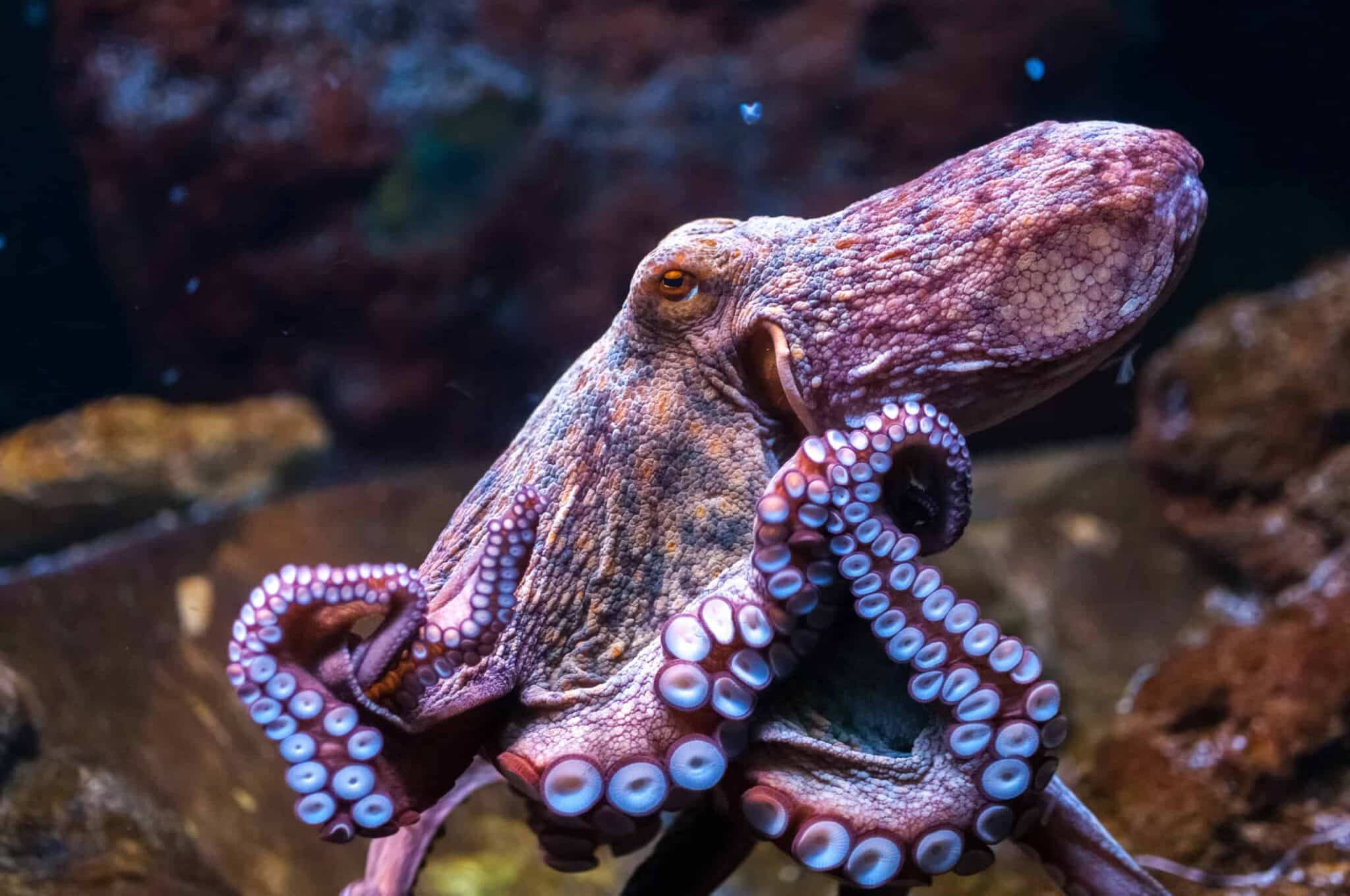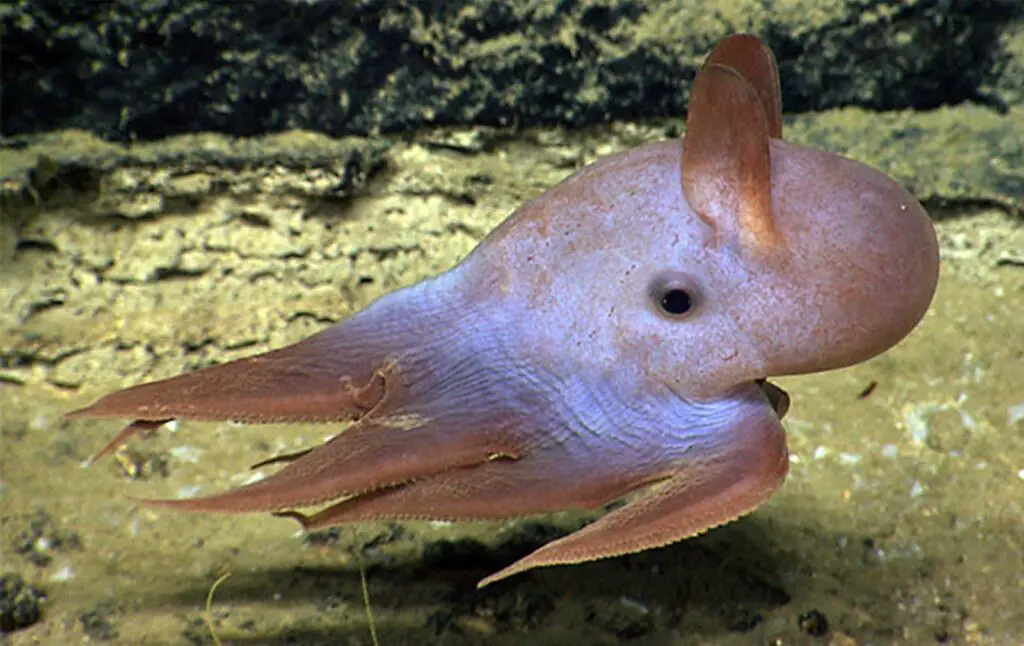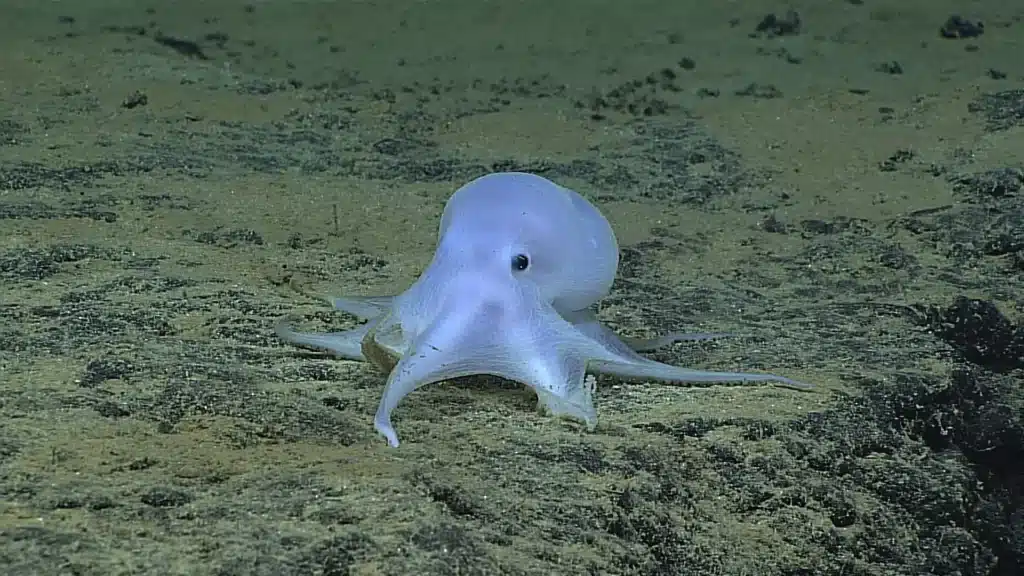Do Octopus Have Ears

Introduction
Do Octopus Have Ears: The octopus, with its mesmerizing appearance and remarkable intelligence, has long captivated the curiosity of scientists and nature enthusiasts alike. While much is known about their extraordinary abilities in camouflage, problem-solving, and locomotion, the question of whether octopuses possess ears remains a topic of intrigue and scientific investigation.
In the underwater realm where octopuses dwell, sound plays a crucial role in communication, predation, and navigation. Many marine creatures, from whales to fish, rely on auditory senses to perceive their surroundings and interact with their environment. This begs the question: do octopuses, with their complex and alien-like physiology, also have the capacity to hear in the vast.
This inquiry delves into the intricacies of octopus biology and their sensory adaptations. It explores the possibility of auditory organs hidden within their soft, gelatinous bodies and examines the evidence from both field observations and laboratory experiments. By unraveling the mystery of octopus hearing, we gain deeper insights into their world, their interactions with other marine life, and the evolution of sensory systems in aquatic organisms.
Join us on this journey into the depths of octopus biology as we seek to uncover whether these enigmatic cephalopods truly have ears and how this sensory revelation contributes to their astonishing underwater survival.

Can an octopus hear?
The common octopus can hear sounds between 400 Hz and 1000 Hz, and hears best at 600 Hz. Octopuses have an excellent somatosensory system. Their suction cups are equipped with chemoreceptors so they can taste what they touch.
The ocean’s depths conceal a myriad of mysteries, and among them is the enigmatic world of the octopus. These highly intelligent cephalopods have long fascinated scientists and enthusiasts alike, prompting questions about their sensory perception. One such query is whether octopuses can hear, a topic that has intrigued marine biologists for years.
Unlike most animals, octopuses lack the traditional external ears we associate with hearing. However, this does not necessarily mean they are devoid of auditory abilities. Research has uncovered compelling evidence suggesting that octopuses are indeed capable of perceiving sound in their underwater habitat.
Rather than ears, octopuses rely on a more subtle form of hearing. Their highly sensitive skin contains specialized receptors that can detect vibrations in the water, including those generated by sound waves. These receptors allow them to sense and respond to a wide range of environmental cues, potentially giving them the ability to detect the sounds of predators, prey, and conspecifics.
While the extent and nuances of octopus hearing are still under investigation, it is increasingly clear that these remarkable creatures possess a sensory system attuned to the underwater acoustic landscape. Understanding how octopuses hear opens a window into their complex and mysterious world, shedding light on their behavior, communication, and survival strategies in the hidden depths of the ocean.
What is the octopus with ears called?
The Dumbo octopus uses its ear-like fins to propel through the water and steers using its webbed arms. 1. 4. The Dumbo octopus is the deepest-living genus of all known octopuses. It lives at least 13,100 feet (4,000 m) below the surface.
Octopuses are fascinating creatures with a variety of sensory adaptations, but they do not possess external ears like many mammals. Instead, they rely on a different mechanism for hearing, primarily through their highly sensitive skin.
Octopuses have specialized structures in their skin called statocysts, which play a crucial role in their perception of sound and balance. Statocysts are fluid-filled sacs containing tiny calcareous particles known as statoliths. These statoliths move in response to vibrations in the water, generated by sound waves or other movements.
When sound waves reach the octopus, they cause the statoliths in the statocysts to move, stimulating sensory cells and allowing the octopus to detect changes in water pressure and movement. This unique system allows octopuses to sense sound and motion in their underwater environment.
So, there isn’t a specific type of octopus known as the “octopus with ears.” Instead, all octopuses possess this specialized mechanism for hearing through their skin and statocysts, which is distinct from the way mammals with external ears hear sounds. This adaptation is essential for octopuses to navigate their surroundings, communicate with each other, and detect potential threats or prey in their aquatic habitats.
Did octopus have heart?
An octopus’s three hearts have slightly different roles. One heart circulates blood around the body, while the other two pump it past the gills, to pick up oxygen.
Octopuses are indeed equipped with a heart, although their circulatory system is quite different from that of humans and many other vertebrate animals. In fact, the octopus heart is a remarkable organ that reflects the unique biology of these intelligent cephalopods.
An octopus has three hearts in total. Two of these hearts, called branchial hearts, are responsible for pumping blood through the gills. These hearts oxygenate the blood, allowing the octopus to extract oxygen from the water and expel carbon dioxide. The third heart, known as the systemic heart, pumps oxygenated blood throughout the rest of the body.
What sets the octopus circulatory system apart is that the systemic heart is a muscular structure that surrounds the esophagus. This design allows the octopus to generate significant pressure when pumping blood, which is essential for forcing oxygenated blood to all parts of its highly agile and complex body. As a result, octopuses are remarkably efficient in distributing oxygen, allowing them to support their active lifestyles and rapid color-changing abilities.
Octopuses do indeed possess a fascinating circulatory system, complete with three hearts, adapted to their unique underwater environment. These hearts play a critical role in ensuring oxygen delivery to the octopus’s complex and highly developed body, contributing to their remarkable survival and adaptability in the world’s oceans.
Where do octopus hear from?
To register sound, an octopus uses a sac-like structure called a stratocyst. The stratocyst contains a mineralized mass and sensitive hairs that allow detection of sounds of certain frequencies. Squid can hear an even wider range of sounds.
Octopuses have a fascinating and unique way of hearing in their underwater environment. While they don’t have external ears like humans or many other animals, they do possess a specialized sensory mechanism that allows them to perceive sound and vibrations in the water.
Octopuses primarily hear through their highly sensitive skin, which is covered in tiny structures called papillae. These papillae contain sensory cells that are extremely responsive to changes in water pressure and vibrations. When sound waves travel through the water, they create subtle pressure changes. Octopuses can detect these changes through their skin and translate them into sensory information.
In addition to their skin, octopuses also have specialized structures called statocysts. Statocysts are fluid-filled sacs containing small, dense particles known as statoliths. These statoliths respond to gravitational forces and movements, as well as vibrations caused by sound waves. The movement of statoliths within the statocysts triggers sensory cells, enabling octopuses to perceive and interpret sound and motion in their surroundings.
This unique hearing mechanism allows octopuses to be highly attuned to their underwater environment. They can sense the sounds of potential predators, prey, and other octopuses, aiding in their navigation, communication, and survival in the ocean’s depths. While different from the hearing systems of many other animals, the octopus’s sensory adaptations are a testament to their remarkable abilities and adaptation to their underwater world.
Can octopus hear underwater?
Octopus and squid can hear.
The discovery resolves a century-long debate over whether cephalopods, the group of sea creatures that includes octopus, squid, cuttlefish and nautiluses, can hear sounds underwater. Compared to fish, octopus and squid do not appear to hear particularly well.
Octopuses, although lacking traditional external ears like mammals, have developed a remarkable ability to perceive sound underwater. They do not rely on the same auditory system that humans or other terrestrial animals use, but their underwater hearing capabilities are no less fascinating.
Octopuses primarily “hear” through their highly sensitive skin and specialized sensory structures. Their skin is covered in tiny structures called papillae, which contain sensory cells that are incredibly responsive to changes in water pressure and vibrations. When sound waves travel through the water, they create subtle pressure fluctuations. Octopuses can detect these changes through their skin, effectively “feeling” the sound in their environment.
Additionally, octopuses have statocysts, which are fluid-filled sacs containing small, dense particles called statoliths. These statoliths respond to vibrations, including those generated by sound waves. When the statoliths move within the statocysts in response to these vibrations, sensory cells are activated, allowing octopuses to perceive and interpret the sounds around them.
While octopus hearing is unique and different from the hearing systems of most animals, it is a crucial adaptation for their survival in the underwater world. They use their hearing abilities to detect the sounds of potential threats, prey, and even communicate with other octopuses. This sensory adaptation is a testament to the remarkable ways in which creatures like octopuses have evolved to thrive in their specific environments.
Does a octopus have ears?
Octopuses do not have traditional ears like those found in humans or many other animals. Unlike mammals, which typically have external ears that capture sound waves and transmit them to the inner ear, octopuses have evolved a unique and different mechanism for perceiving sound in their underwater environment.
Octopuses primarily rely on their highly sensitive skin to detect sound and vibrations in the water. Their skin is covered in tiny structures called papillae, which contain sensory cells that are extremely responsive to changes in water pressure and vibrations. When sound waves propagate through the water, they create subtle pressure variations. Octopuses can detect these changes through their skin, effectively “feeling” the sound in their surroundings.
In addition to their skin, octopuses possess specialized sensory structures known as statocysts. These are fluid-filled sacs containing small, dense particles called statoliths. Statoliths respond to gravitational forces and movements, as well as vibrations caused by sound waves. When the statoliths move within the statocysts, they trigger sensory cells, allowing octopuses to perceive and interpret sound and motion.
While octopuses do not have ears in the conventional sense, their unique sensory adaptations enable them to be highly attuned to their underwater environment. They can sense the sounds of potential threats, prey, and even communicate with other octopuses, demonstrating their remarkable ability to adapt and thrive in the depths of the ocean.
Are there any known instances of octopuses using their hearing for specific behaviors?
While octopuses primarily rely on their keen sense of touch and vision for various behaviors, there is growing evidence to suggest that they use their unique hearing abilities for specific purposes in their underwater world.
Predator Avoidance: Octopuses are known to be cryptic and elusive creatures, and they use their hearing to detect potential threats. When they perceive the sounds of nearby predators, such as sharks or larger fish, they may retreat to their dens or employ their incredible camouflage abilities to avoid detection.
Hunting: Octopuses are opportunistic predators, and their hearing can help them locate prey. They may listen for the sounds of crustaceans, mollusks, or other small marine animals moving nearby, allowing them to ambush their prey with precision.
Communication: Octopuses are not solitary creatures all the time, and they engage in social interactions during mating and territory disputes. While their primary mode of communication is through visual displays and body language, they may also use sound as a means of signaling to other octopuses during encounters.
Navigation: Octopuses are known for their exceptional problem-solving and exploration abilities. Their hearing may aid them in navigating their underwater environment by perceiving the sounds of currents, underwater topography, or other features that can guide their movements.
While the full extent of octopuses’ auditory capabilities and the specific behaviors influenced by hearing are still subjects of ongoing research, it is clear that their unique sensory adaptations, including their ability to perceive sound and vibrations, play a vital role in their survival and interactions within the complex ecosystems of the ocean.
Can octopuses communicate using sound?
Octopuses are indeed capable of communicating using sound, although their method of sound production and reception differs significantly from that of many other animals. Their underwater world is rich in sensory cues, and sound serves as one of their communication tools.
- Sound Production: Octopuses can produce sound by expelling water through a specialized structure called a siphon. By controlling the rate and force of water expulsion, octopuses create distinct acoustic signals. These sounds can vary in frequency, intensity, and duration, allowing octopuses to convey different messages. While some of these sounds may be audible to humans, others fall within the ultrasonic range, beyond human hearing.
- Communication Signals: Octopuses use sound to communicate with conspecifics (other octopuses) during various social interactions. These interactions may include courtship and mating rituals, territorial disputes, or warnings to potential rivals. The specific context and type of sound produced can convey information about the octopus’s intentions, emotions, or status.
- Reception: Octopuses have highly developed sensory systems, and they can perceive the sounds and vibrations in their underwater environment using specialized structures in their skin and statocysts, as discussed earlier. This ability allows them not only to produce sound but also to “listen” to the sounds of their surroundings and potentially respond to them.
While much remains to be discovered about the intricacies of octopus communication through sound, it is clear that these creatures have evolved unique and sophisticated mechanisms to convey information and navigate the complexities of their underwater lives. Further research into octopus acoustic communication promises to unveil more of the mysteries surrounding these intelligent and enigmatic animals.

Conclusion
In the quest to understand the sensory repertoire of octopuses, we have ventured into the intriguing realm of their auditory abilities. While these cephalopods are renowned for their intelligence, camouflage tactics, and unique physical features, the existence of ears among them has been a subject of fascination and inquiry.
Our exploration has yielded intriguing insights. While octopuses lack the conventional external ears found in many terrestrial animals, there is evidence to suggest that they are not completely deaf to the underwater symphony that surrounds them. Octopuses are known to be highly sensitive to vibrations, and their remarkable skin contains specialized cells that may serve as receptors for sound.
Field observations have hinted at octopuses’ responses to acoustic stimuli, and experiments have indicated their ability to detect low-frequency sounds. However, many questions remain, such as the range of frequencies they can perceive and the extent to which hearing impacts their behavior and survival in their aquatic habitats.
While the mystery of octopus hearing is far from fully unraveled, our exploration has shed light on the intriguing possibility that these enigmatic creatures possess a form of hearing adapted to their underwater existence. As science continues to delve into the depths of octopus biology, the question of whether octopuses truly have ears will undoubtedly remain an intriguing puzzle, inviting further investigation and discovery in the wondrous world beneath the waves.



